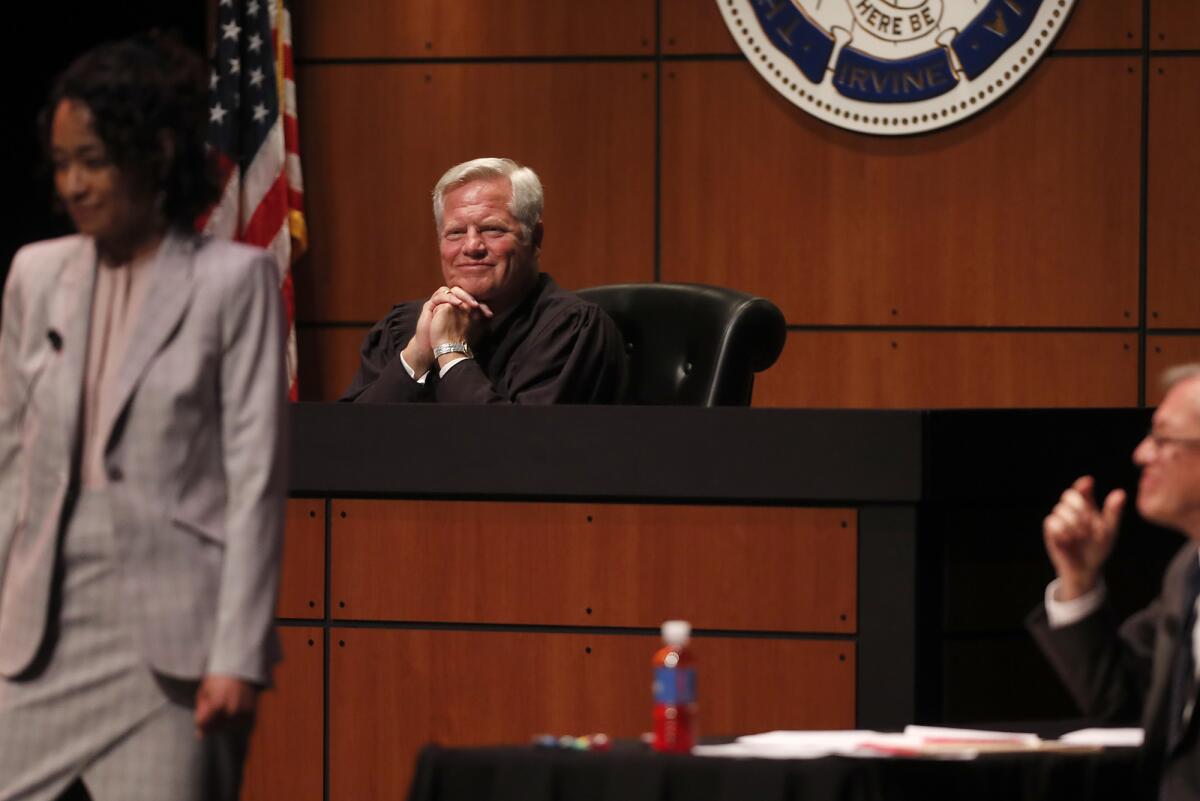Court overturns conviction of former Laguna Beach man found guilty of plotting to kill judge in wood chipper

- Share via
A former Laguna Beach resident previously found guilty of plotting to put a judge through a wood chipper had his conviction overturned earlier this month after a federal court ruled a lower court had wrongly determined he was incapable of representing himself at trial.
The July 24 ruling from the U.S. 9th Circuit Court of Appeals allows a new trial for John Arthur Walthall.
In 2016, District Judge Cormac Carney sentenced Walthall — who was already serving a 14-year prison term for fraud — to 20 additional years after he was convicted of hatching a plan to kill the federal prosecutors, agents and judge who oversaw his earlier case.
That case began in 2007 when Walthall scammed an elderly couple into investing $5.5 million into a proposed business plan to extract gold from abandoned mines. Walthall instead used the money to cover his son’s film school tuition, pay alimony to his ex-wife and buy a hyperbaric oxygen chamber, prosecutors said.
In the middle of that case, Walthall jumped bail and fled to Nevada, where authorities later found him with a handgun, several cell phones and a copy of the book “How to Be Invisible.”
Jurors convicted Walthall in 2012 of four counts of wire fraud and one count of failure to appear in court. District Judge Andrew Guilford sentenced him to 14 years in prison.
While behind bars in Lompoc, Walthall concocted a detailed scheme to kidnap Guilford and force the judge to exonerate him. Afterward, Walthall planned to torture the judge and shred him in a wood chipper, according to court papers.
Walthall enlisted two other inmates to help carry out the mission, but they instead informed the FBI of his plans.
At Walthall’s 2016 trial, the court, supported by two psychologists’ evaluations, denied his right to represent himself — finding that, while he was competent enough to stand trial, his “antics during court appearances” demonstrated that he was not sufficiently capable of presenting his own defense, according to court documents.
Walthall alleged during the trial that his defense attorney was conspiring to send him to die in prison.
The 9th Circuit, however, found that lacking legal knowledge is not grounds enough to deny a person’s right to self-representation, and that the district court had committed a “structural error” by not properly informing Walthall of this right, according to court documents.
“Once the district court determined that Walthall was competent to stand trial, the district court erred by not making further inquiry to support findings concerning Walthall’s ability to represent himself,” the opinion states.
All the latest on Orange County from Orange County.
Get our free TimesOC newsletter.
You may occasionally receive promotional content from the Daily Pilot.









